© 2025 Center for Digital Innovation and AI
There is growing global consensus that Information and communication technologies represent a real opportunity to improve educational inclusion and make educational content and activities accessible to all learners. In this sense, Assistive technologies acts as a catalyst, promoting a mindset shift that makes the learning environment more inclusive and supportive of student engagement whether it is those who learn at a slower rate or those gifted students who benefit from enrichment activities. From this standpoint, the New Educational Technologies Unit (UNTE) of Saint Joseph University of Beirut (USJ) organized its third EduTech Café meeting on Monday 30 May 2022 at 11 a.m.
La troisième rencontre EduTech a rassemblé un bon nombre d’enseignants et de chercheurs. Ainsi, l’intervention de Madame Rehab Dorgham , s’inscrit dans le domaine des technologies numérique pour rendre l’éducation accessible à tous. L’échange entre experts de l’Université de Qatar et les enseignants-chercheurs s’est attardé sur le rôle des technologies d’assistance en faveur de l’éducation inclusive. Diverses thématiques ont été abordées : l’usage des technologies d’assistance, les outils qui permettent l’atteinte des résultats d’apprentissage, les recommandations internationales.
This third meeting included a 40-minute intervention delivered by Mrs. Rehab from Qatar University followed by a 20-minute discussion. The exchange was quite fruitful and emphasized the importance of inclusion through the “Creation of accessible environments for all by meeting the needs of all” (Bergeron et al., 2011). Rethinking 21st century pedagogy means addressing digital inclusion (e-inclusion) too.
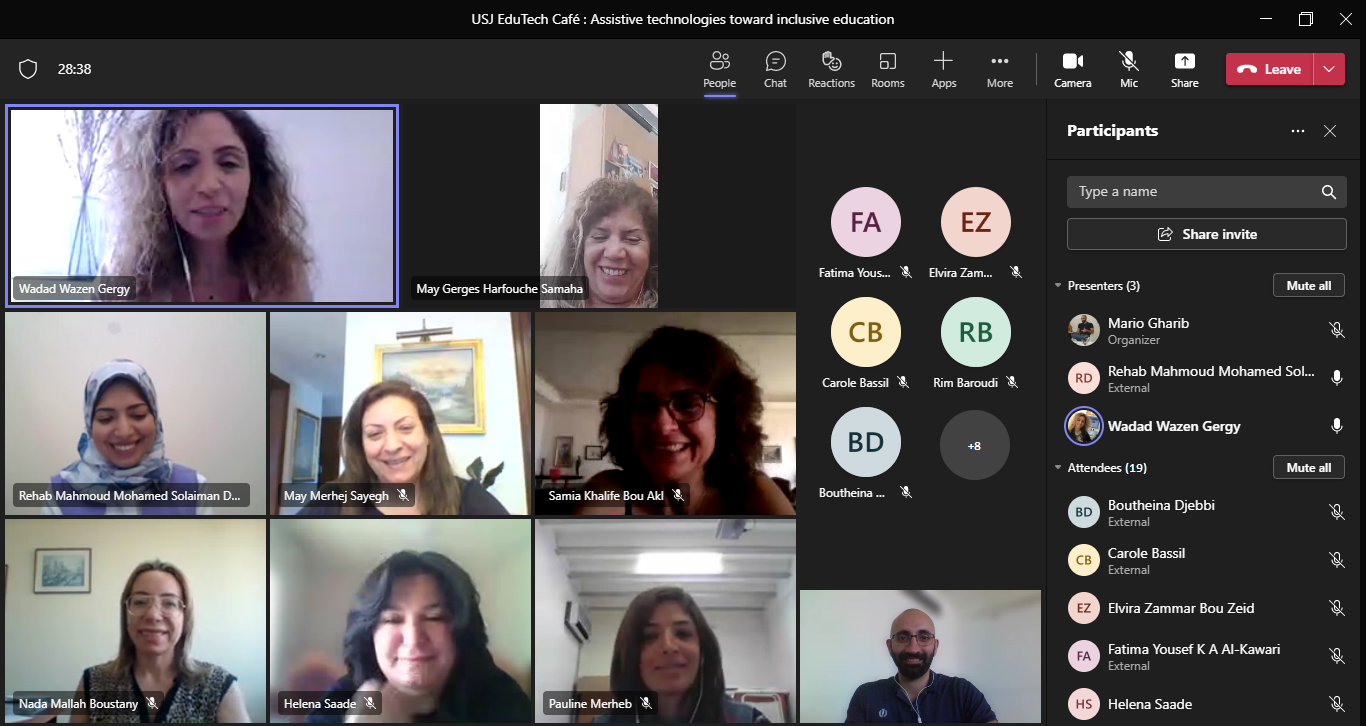
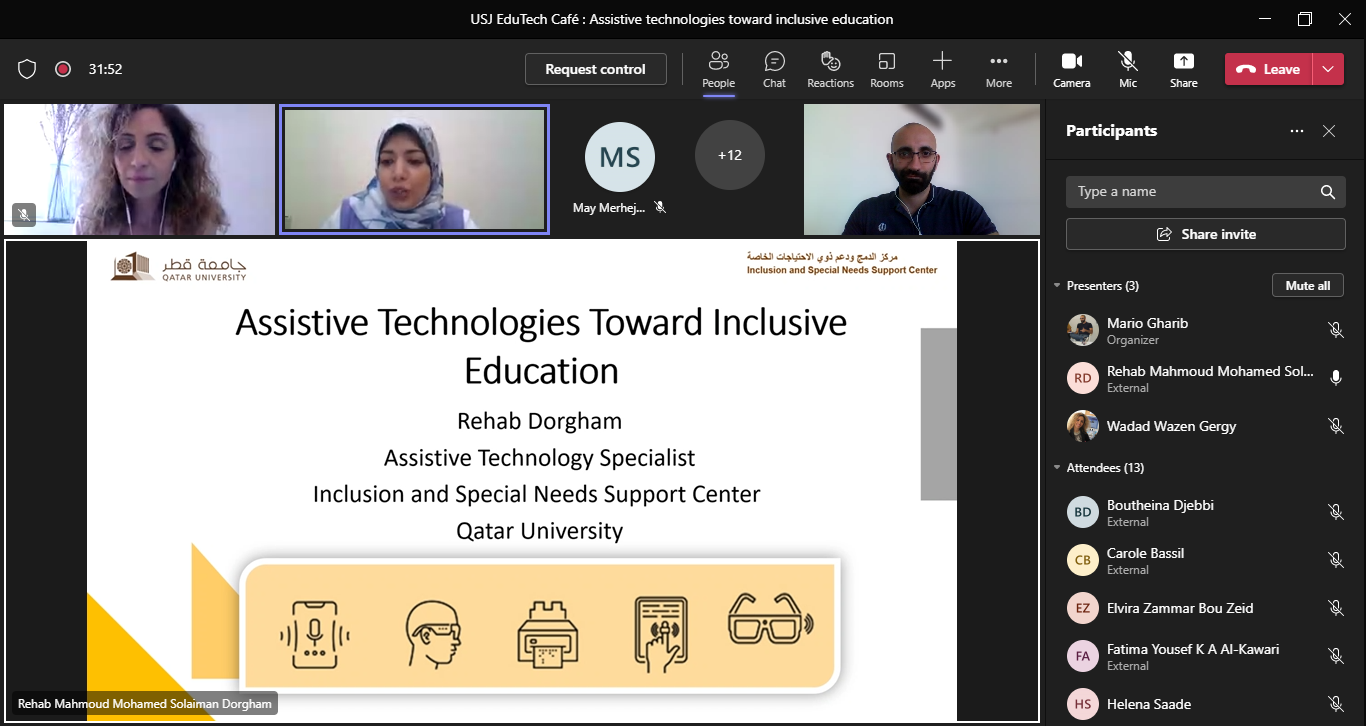
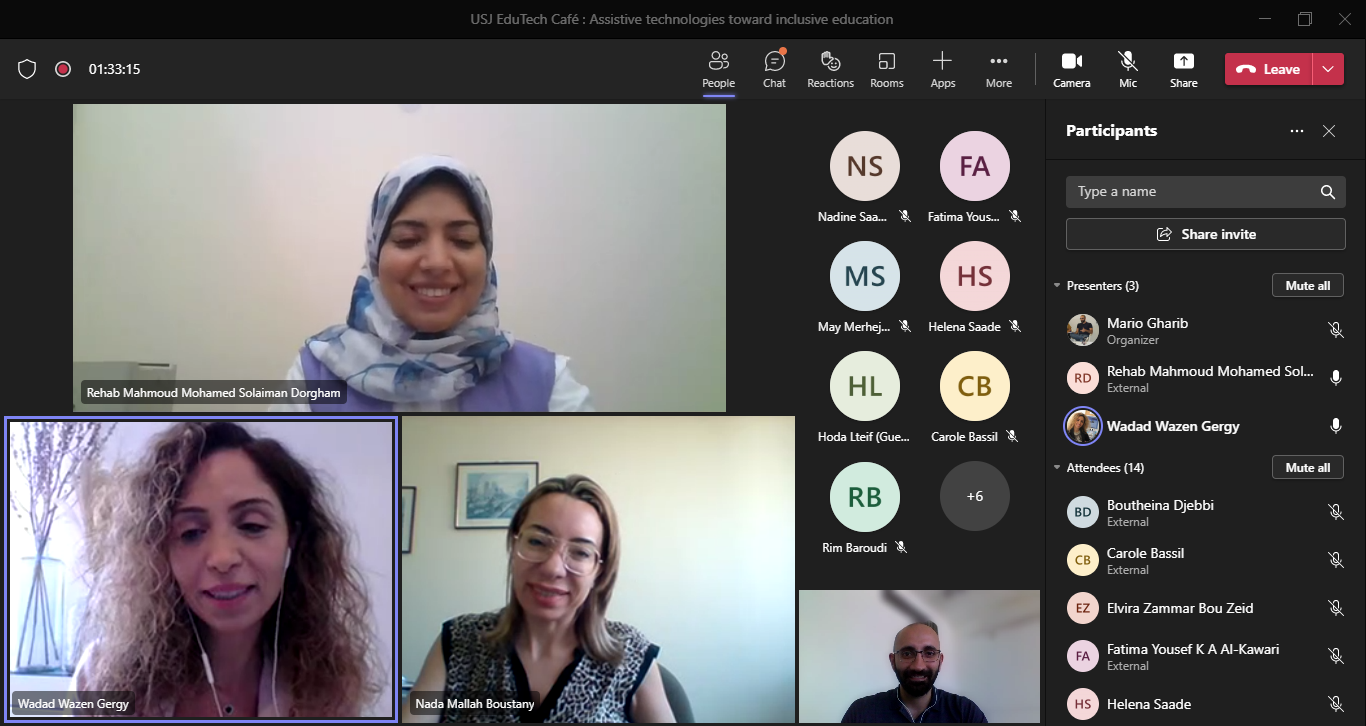
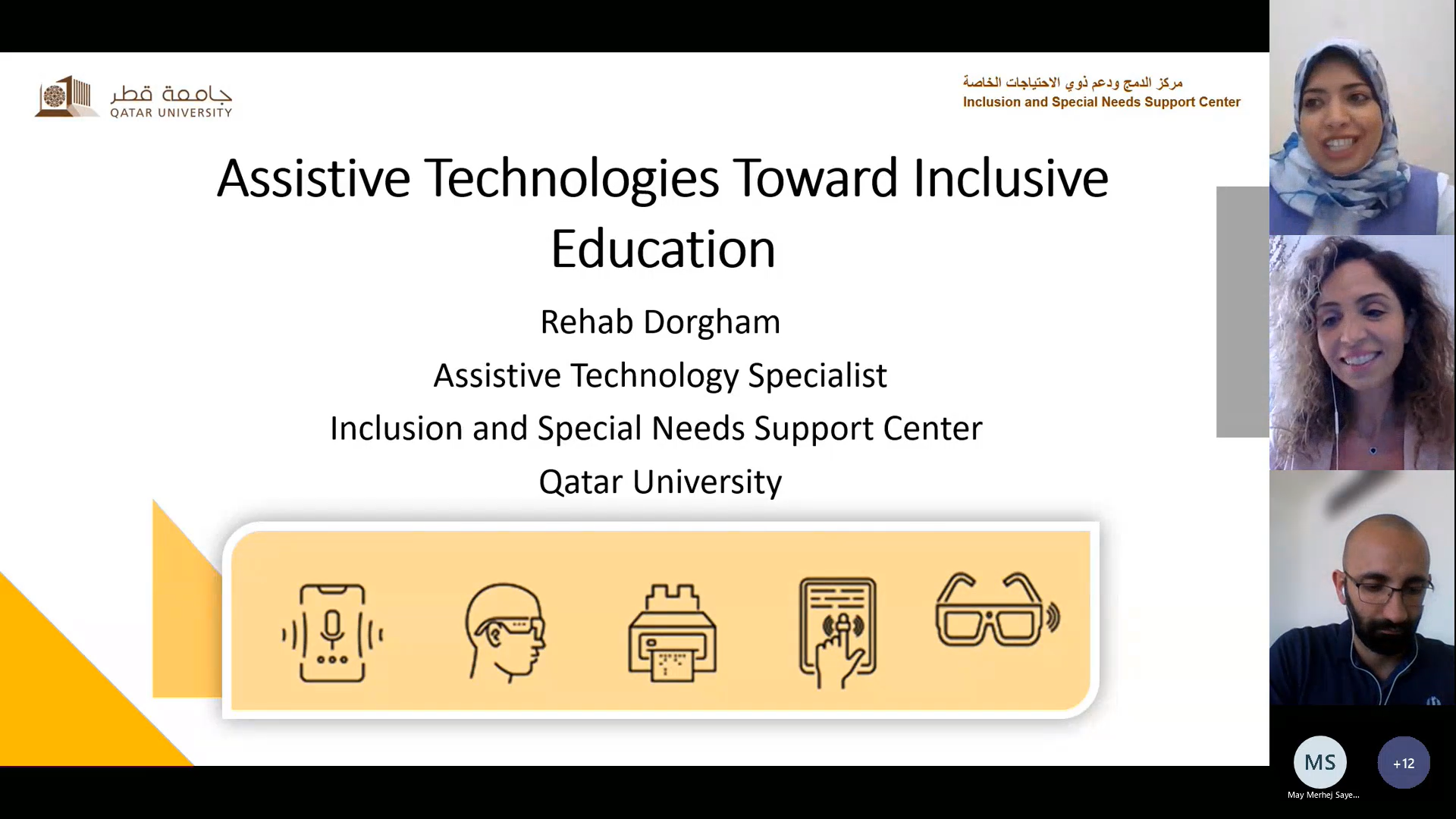
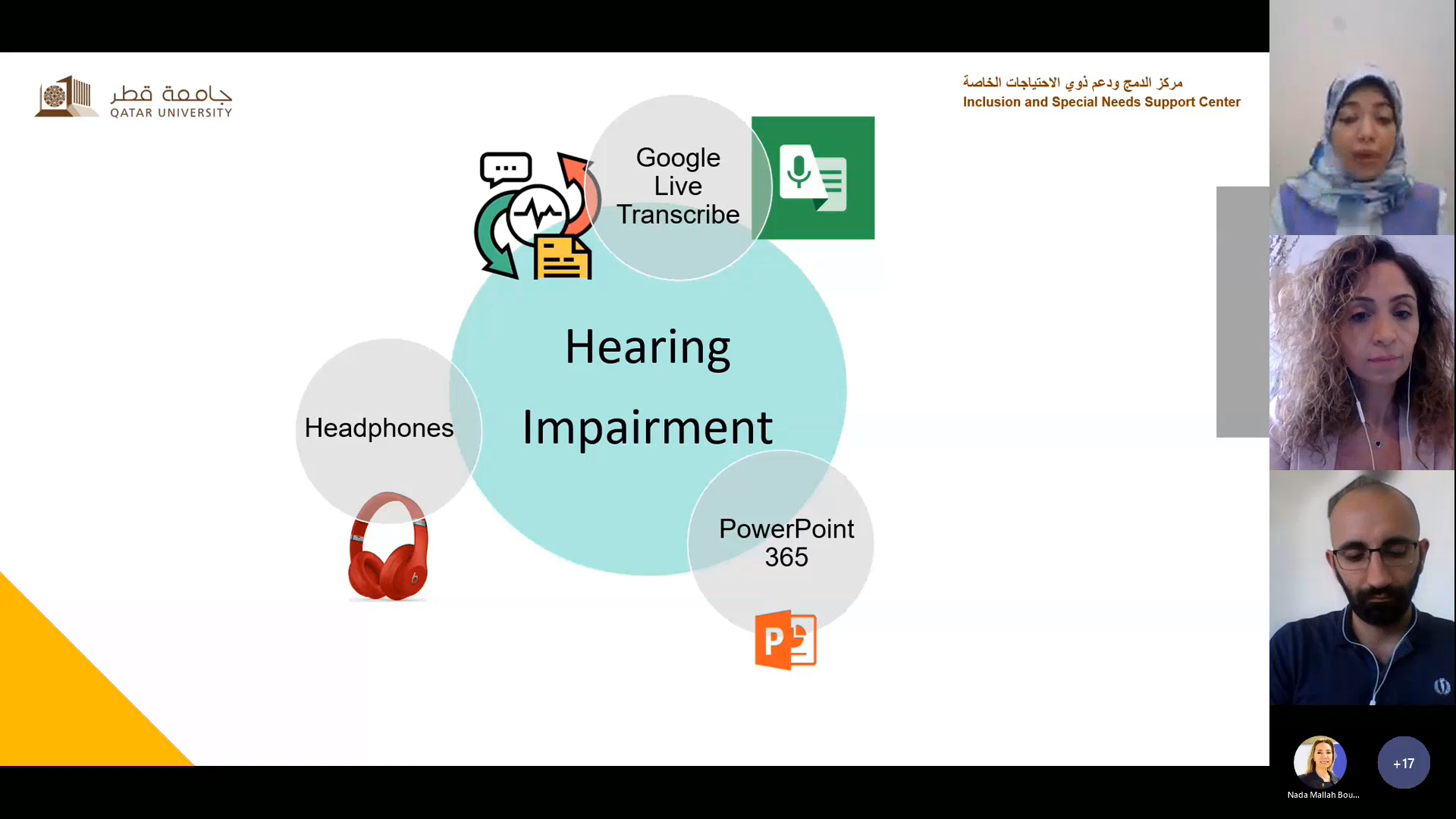
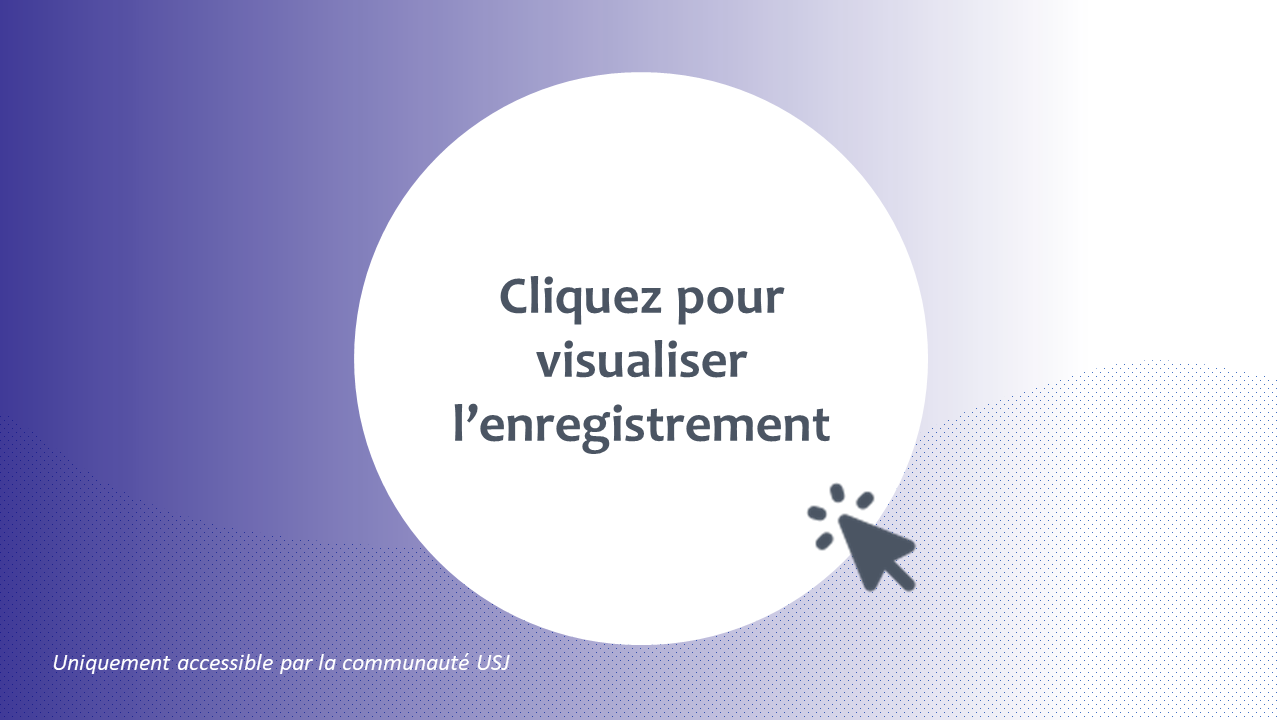
There is growing global consensus that Information and communication technologies represent a real opportunity to improve educational inclusion and make educational content and activities accessible to all learners. In this sense, Assistive technologies acts as a catalyst, promoting a mindset shift that makes the learning environment more inclusive and supportive of student engagement whether it is those who learn at a slower rate or those gifted students who benefit from enrichment activities. From this standpoint, the New Educational Technologies Unit (UNTE) of Saint Joseph University of Beirut (USJ) organized its third EduTech Café meeting on Monday 30 May 2022 at 11 a.m.
The third EduTech meeting brought together a good number of teachers and researchers. Thus, Madame Rehab Dorgham’s intervention falls within the domain of digital technologies to make education accessible to all. The exchange between experts from Qatar University and teacher-researchers focused on the role of assistive technologies in promoting inclusive education. Various themes were discussed: the use of assistive technologies, the tools that enable the achievement of learning outcomes, and international recommendations.
Paraphrase text
This third meeting included a 40-minute intervention delivered by Mrs. Rehab from Qatar University followed by a 20-minute discussion. The exchange was quite fruitful and emphasized the importance of inclusion through the “Creation of accessible environments for all by meeting the needs of all” (Bergeron et al., 2011). Rethinking 21st century pedagogy means addressing digital inclusion (e-inclusion) too.






Leave a Reply Cancel reply
CINIA is located on the 7th floor of the USJ Human Sciences Campus on Damascus Street in Beirut.
Do not hesitate to contact us at cinia@usj.edu.lb
or call us at +961 1 421 000 extension 5923/5924.
© 2025 Center for Digital Innovation and AI. Created for free using WordPress and Kubio


No responses yet